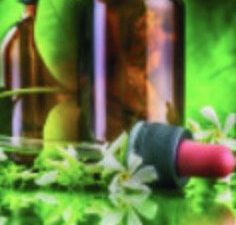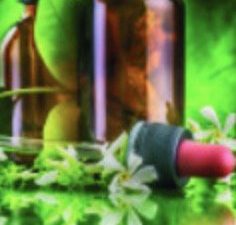Natural Remedies
November 1, 2017


Travel may broaden the mind but it takes its toll on the body, affecting everything from your circulation and digestion to immune system and memory, according to a 2015 research study conducted by the University of Surrey. But is there anything you can do to reduce your chances of getting ill?
If you visit your local pharmacy or health food store, you would think so. The shelves of supposedly health-boosting supplements seem to grow weekly. Some, such as extract of reishi mushroom, already have a cult following. Others, like turmeric, are even creeping into our lattes. But given that some of these supplements aren’t cheap – some top reishi brands cost north of $40 a month – will a health-boosting pill really make a difference to our health?
“There is evidence that taking a natural supplement can reduce your chances of getting ill,” says Karen Alexander, nutritional therapist and technical advisor to Wild Nutrition, a UK-based supplement supplier. “In an ideal world, we would get everything we need from a balanced diet. But frequent travel often means erratic eating patterns, as well as disrupted sleep, dehydration and reduced circulation, all of which lower the immune system, so the body is less efficient at fighting off viruses and bacteria. For all those debilitating reasons, frequent travelers should consider supplementing to support their health.”
Still, if health-boosting supplements work, it begs the question, why aren’t doctors handing them out like Skittles? The answer is evidence. “There are pills that have been shown to have an effect on cells in laboratory tests, which suggests that they may be useful, but there’s a very big step between that and being effective in a patient,” says Anton van der Merwe, professor of molecular immunology at the University of Oxford.
“To prove that, you need a large, double-blind, placebo-controlled clinical trial, which is the gold standard in medicine. Unlike pharmaceutical medicines, these products don’t need to provide this evidence. Just because a supplement is sold over the counter, it doesn’t mean there’s any proof that it’s safe, or that it works.”
It’s a case of “buyer beware,” says Jayney Goddard, president of the Complementary Medical Association. “Some products on our health food store and pharmacy shelves are just not worth buying,” she says. “Someone with a balanced diet and healthy lifestyle doesn’t need supplements, but frequent travel can deplete the body so you may need extra support. Do your research, and then treat it as an experiment and see if it makes a difference.”
As we know you’re busy, we’ve done the hard work for you. Here are the top ten supplements with enough convincing evidence to suggest they could make a difference, and help to defend your health against the challenges of frequent travel.
TOP TEN SUPPLEMENTS
1. What to take… for a post-flight cold
Pelargonium sidoides
This extract of the geranium root has been widely used in Germany since the 1980s for colds and flu, because of its antiviral properties.
The health claim: Kaloba by Schwabe Pharma, a licensed herbal medicine that contains extract of pelargonium, “attacks the viruses that cause many upper respiratory tract infections.”
The evidence: Research from the University of Chicago found that pelargonium “shows promise” as a treatment for respiratory infections. A review of eight trials by the respected Cochrane Collaboration concluded that Kaloba “may be effective in alleviating the symptoms of acute rhinosinusitis and the common cold.”
2. What to take… when you’re under pressure
Ashwagandha
Ashwagandha is used in traditional Ayurvedic medicine as an “adaptogen” – a herb that helps us to cope with the effects of stress.
The health claim: “Ashwagandha is the perfect herb for the 21st century as it both calms and energizes, and is helpful for assisting deep sleep and calming nervous tension,” says herbalist Sebastian Pole. “Its affinity for the adrenal, endocrine and nervous systems point to its use in any imbalances affecting our energy or vitality.”
The evidence: Ashwagandha was as effective at reducing the symptoms of anxiety as the prescription medication lorazepam. It also significantly improved resilience against stress in a group of participants who took the supplement for 60 days.
Organic India Ashwagandha, $17.74 (90 count); Walmart. Kaloba, £7.80 ($10) for 30 tablets from schwabepharma.co.uk Also marketed in the US under the names Umcka and Zucol.
3. What to take….to fight pollution
Vitamin B complex
The eight types of B vitamins play a role in regulating the nervous system, releasing energy from food, delivering oxygen to cells and tissues, and making red blood cells.
The health claim: Supplementing with B vitamins can reduce the impact of harmful pollutants on the body.
The evidence: A recent study from City University in Hong Kong found that taking a daily B complex supplement could offer some protection against the impact of PM2.5, a microparticle in pollution that is small enough to enter the respiratory system and cause inflammation throughout the body. An earlier Australian study found that high doses of B complex helped to protect against the effects of occupational stress in a group of executives.
$9.99 (100 tablets); Nature Made at Walgreens
4. What to take… to boost immunity
Red Reishi
Known as the “mushroom of immortality” in Eastern medicine, reishi extract is used in Japan as an adaptogen, something that reduces the body’s vulnerability to stress and helps to build natural immunity. It is traditionally used as a general physical and mental wellbeing booster.
The health claim: It’s gaining such a reputation as an immune booster that even Cancer Research UK wants to see clinical trials on its use in cancer patients.
The evidence: Studies consistently show that reishi is effective at boosting the activity of the immune system, although many of the studies have been done on rats. A Cochrane review of five clinical trials found that it improved patient response to chemotherapy or radiotherapy.
Pure Red Reishi Capsules, $18.70 (90 capsules); Aloha Medicinals from iherb.com
5. What to take… to prevent DVT
Aged black garlic
Black garlic is the latest superfood, an Asian delicacy that is created by fermenting regular garlic at high temperatures to produce a dark-colored, soft, sweet-tasting bulb.
The health claim: Aging the garlic increases its anti-inflammatory properties, increasing levels of S allylcysteine, the natural ingredient in garlic, which is thought to reduce blood pressure, high cholesterol and the incidence of clotting.
The evidence: An Australian study of patients with uncontrolled hypertension showed a significant reduction in mean blood pressure over 12 weeks. Having high blood pressure and spending periods immobile increases the risk of deep-vein thrombosis (DVT).
Aged Black Garlic, $12.99 (30 capsules); Kyoto brand from swansonvitamins.com.
6. What to take…to soothe your digestion
Alflorex
A strain of bifidobacterium probiotic (healthy bacteria) that targets and reduces the symptoms of irritable bowel syndrome (IBS).
The health claim: Not all probiotics are effective for IBS but Alflorex is the number-one probiotic recommended by gastroenterologists in the US. Alflorex contains Bifidobacterium infantis 35624, from the family of bacteria passed from mother to babies at birth, which has been shown to reduce the symptoms of IBS. Improving the balance of your gut flora is thought to have an impact on your general health and mental wellbeing.
The evidence: There are 75 studies on this strain of bacteria, one of which showed it reduced symptoms such as abdominal pain, bloating and problematic bowel movements after eight weeks.
$29.41 (42 capsules); Align daily probiotic supplement from Amazon.com
7. What to take… to reduce stress
Lavender oil
Essential oil extracted from the flowers of Lavandula angustifolia lavender plants.
The health claim: Pharmaceutical-quality lavender oil reduces excessive activity of neurotransmitters in the brain that produce anxiety, and boosts levels of calming serotonin.
The evidence: Small studies suggest lavender oil is as effective as prescription medication at reducing the symptoms of anxiety. One study of people with “subthreshold” (mild) anxiety found that 76 percent reported a 50 percent reduction in anxiety within two weeks.
Lavela WS 1265 Lavender Oil capsules, $35.00 (60 softgel capsules); Integrative Therapeutics brand from naturalhealthy concepts.com
8. What to take… if you think travel is aging you
Chlorella
A freshwater micro-algae grown in Asia.
The health claim: It’s thought the “Chlorella Growth Factor” complex within the micro-algae, which helps its own cells to reproduce rapidly, can help to repair damaged tissue and heal wounds in humans. It’s also a good source of magnesium, known as “nature’s tranquilizer.”
The evidence: Studies have shown it reduces inflammation in the body at cellular level, thought to be one of the causes of aging.
Broken cell wall chlorella, $39.99 (900 tablets); SunFood brand from vitacost.com
9. What to take… to protect your joints
Turmeric
This yellow spice found in Indian and South East Asian food comes from the root of the curcuma longa plant.
The health claim: In Ayurvedic medicine, turmeric is known for its anti-cancer properties as well as for alleviating aching joints.
The evidence: One study of 107 participants found turmeric supplements were as effective as ibuprofen at reducing knee pain when walking or climbing stairs. A review of relevant studies found promising in vitro results but called for more clinical trials on patients with osteoarthritis.
Better You Turmeric Oral Spray (orange-flavored), £17.95 ($23.50); betteryou.com
10. What to take…to beat jet lag
NADH
A chemical that naturally occurs in the body and plays a role in releasing energy from glucose at cellular level.
The health claim: NADH improves mental clarity and concentration. As a bonus, it may help to lower cholesterol and blood pressure, and counteract the effects of alcohol on the liver.
The evidence: Research has found that supplementing with NADH improves cognitive function and reduced sleepiness after an overnight long-haul flight. “Take eight capsules – two before you travel, two during the flight, then four when you arrive at your destination and you need to be awake,” says nutritional therapist Karen Alexander. “It goes well with ashwagandha supplements to beat
stress – so you’re energized but relaxed.”
Maximum Strength 20 mg NADH, $31.99 (30 tablets); swansonvitamins.com
By Sally Brown




